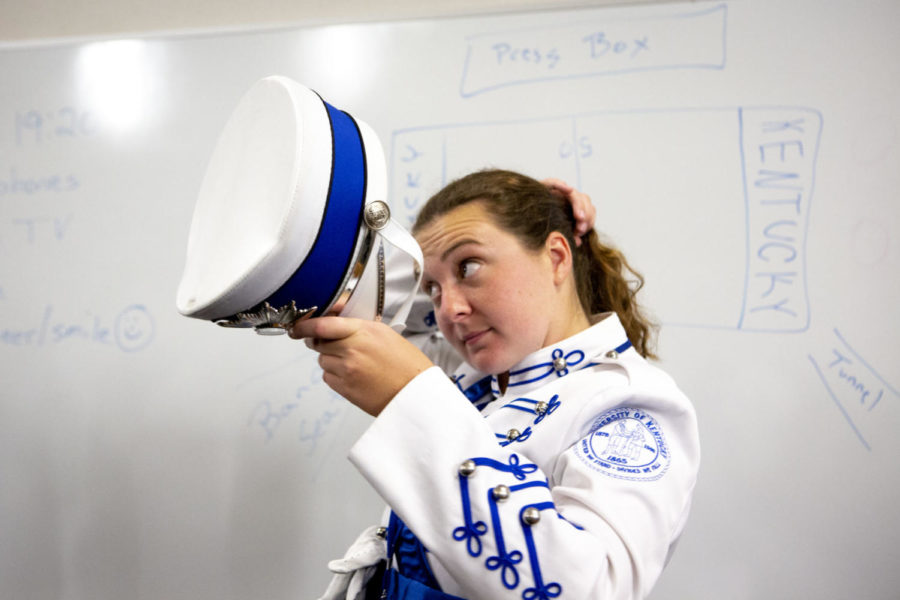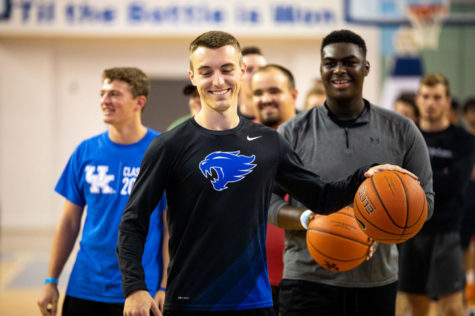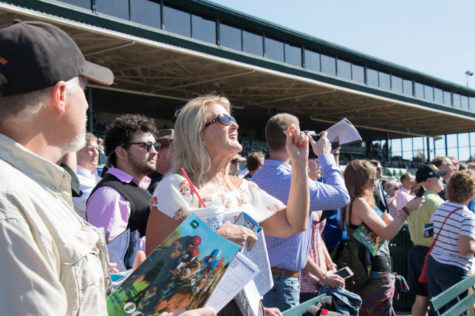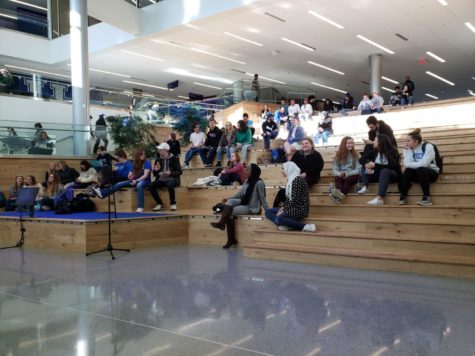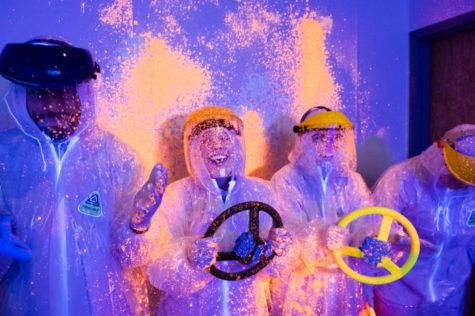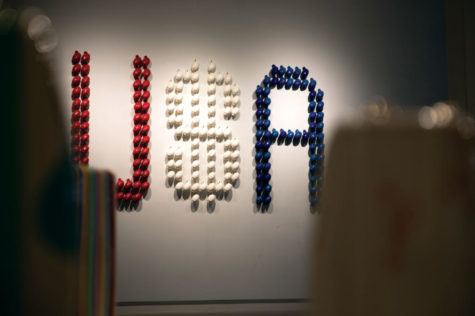Marching to a new beat: Celebrating the 50th anniversary of women in the marching band
October 1, 2018
Any UK football fan is familiar with the spectacle that is the Wildcat Marching Band. The band adds a little more life to the constant stops in the game, revving the crowd up with songs meant to get the blood pumping.
And halftime wouldn’t be the same without watching the band’s intricate performance. But the band we see and hear today is not the same band from the grandparent generation.
Fifty years ago, the WMB completely transformed. Fifty-one years ago, the band was small and lacking in feminine touch. Only one single woman, a featured twirler, was on the football field during halftime. Besides that, there were no women to be seen in the marching band, even though plenty of other colleges at the time had female marchers.
This all changed thanks to one director who was hired with the intention of serving only one year. However, the band Harry Clarke was presented to direct was disappointing to say the least.
Back in the ‘50s, the band was known as “The Marching 100” because of its traditionally small numbers. In the summer of 1968, only 30 people had signed up for the WMB. Clarke saw a solution to this. Having previously been a high school band director with both male and female musicians, Clarke opened the WMB to women for the first time not only to help recruiting numbers but also to end a “silly” tradition.
“I just made the decision myself, ‘We’re going to add girls to the band,’” said Clarke. “We added not only players but we added majorettes, we added flag bearers at that same time.”
Such big changes weren’t unwelcome to Wildcat fans. In Clarke’s view of things, fans were positive about any change as long as that meant the band improved. And improve it did. In Clarke’s first year, the WMB was picked by the state to represent Kentucky in the Presidential Inaugural Parade in Washington D.C.
“I have to guess we were really good that first year. It was so much better than anything that they had experienced in the past, or the recent past, that they thought, ‘Wow, this is really good.’ So they said, ‘You got it.’ And that was the beginning of 21 years,” Clarke said of his temporary position turning into over two decades of directing.
This year marks the 50th anniversary for women in the WMB and also the 50th anniversary for UK’s Sweetheart Majorettes, a baton twirling team of about a dozen or so women.
“They were setting a new tradition and they were the focus of that tradition,” Clarke said, referring to first women in the band. “‘First women in the UK band.’ Can you imagine how important they must have felt?”
One of the first women in the WMB was Marilyn Schraeder, a clarinettist who is still heavily involved with music today. As a senior when Clarke opened the band to women, Schraeder’s last year ended up being her first to march.
“I was excited and knew that I had to do it,” Schraeder said. “I loved going to the football games and watching the band march and stuff, and I had a lot of friends in it, being in music, I majored in music. I just knew I had to do it.”
Growing up, she was surrounded by music. Her mother was a piano teacher, her father a harmonica player, her brother a saxophonist in the band, and she herself played in band from 5th grade to 12th grade. So when WMB presented her an opportunity, it was a no-brainer, and she said she wouldn’t trade that experience for anything.
“It’s just an experience you’ll never forget, the camaraderie,” Schraeder said. “I mean I still have my clarinet and I can still play the UK song. I mean those are just things you just don’t forget. I’m 71 years old but I still remember a lot of things I did then.”
Schraeder’s love for the WMB is not something that has been lost in the past 50 years. Cassie Morrelles, a senior Human Health Sciences major and one of this year’s drum majors, shares many of the same feelings.
“I love the marching band because it gives me the opportunity to make music with hundreds of other students my age who love band as much as I do,” Morrelles said. “I love getting to meet all these people and perform with them on Kroger Field almost every weekend. I love traveling with them to stadiums and cities I would never get to go to if I weren’t in the band. The friends I’ve made in band over the years are some of the most important friendships I’ve ever made.”
Morrelles holds one of the highest positions in the band. One of her most recognizable responsibilities to spectators is conducting and keeping a positive attitude for her fellow band members to follow. Just over 50 years ago, this wouldn’t have been possible at UK.
“Females have held the position in the past and I’ve never understood why a female shouldn’t be able to do something if they can do it just as well as a male,” Morrelles said.
UK has stopped at nothing to celebrate these women and their achievements. At the Sept. 22 game, there were about 30 female twirlers and a women’s show featuring songs by top female artists, including “Firework” by Katy Perry, “Born This Way” by Lady Gaga and “Girl on Fire” by Alicia Keys. There was a choreographed dance to “Single Ladies” by Beyoncé and special field formations including Wonder Woman and a dancing girl. The men of the WMB also kneeled at the end of the performance to highlight the women of the band.
Dana Bigg, the current Director of Athletic Bands, said there will be a future celebration for Clarke’s 50th year since he first became director. On Nov. 3, Clarke and two of his former assistants will conduct the band, in conjunction with the alumni band reunion, in a Queen-themed show.









































































































































